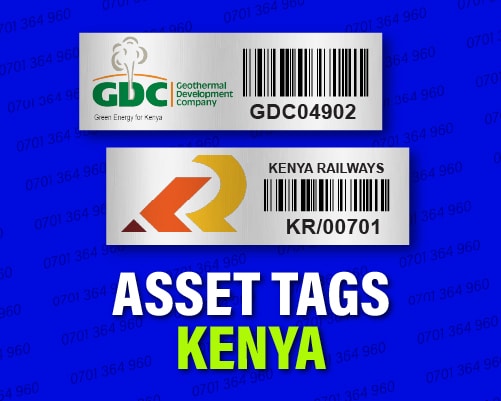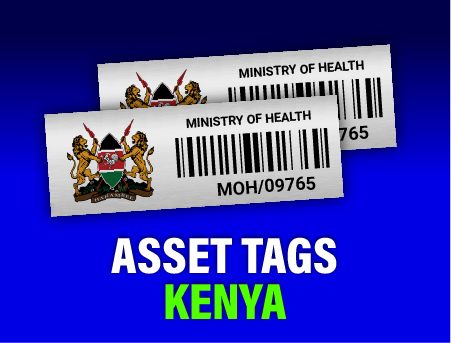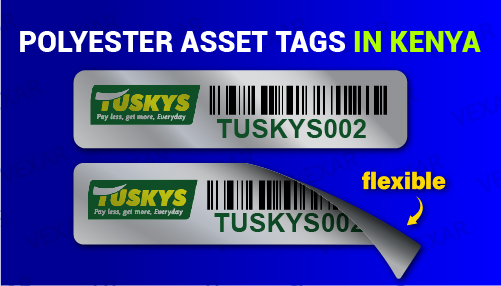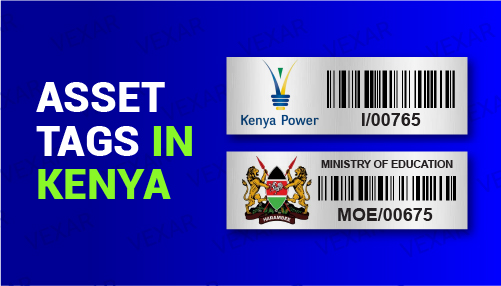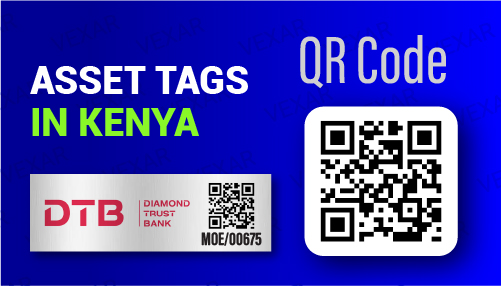Fixed Asset Tags Price in Kenya – Factors Affecting Aluminium, Barcode, QR Code, and Polyester Tags
Understanding Fixed Asset Tags and Their Value
Fixed asset tags price Kenya: In Kenya, businesses of all sizes rely on fixed asset tags to track, manage, and protect valuable assets.
These tags come in various materials and formats – including aluminium, metallic barcode, QR code, and polyester –
each designed for different levels of durability, environmental resistance, and ease of scanning.
Understanding the factors that influence the fixed asset tags price helps organizations plan their asset management budget efficiently.
Material Type and Its Impact on Price
The first and most significant factor affecting asset tag pricing is the material.
Aluminium asset tags are known for their durability, corrosion resistance, and ability to withstand harsh environments,
making them slightly more expensive than basic polyester tags. Metallic barcode tags, often made from stainless steel or anodized aluminium,
add precision laser engraving, which increases the cost further. Polyester tags, while cost-effective, are better suited for indoor or low-abrasion environments.
Choosing the right material depends on how long you need the tag to last and the conditions it will endure.
Size and Shape Customization
The dimensions and design of a tag also influence its price. Larger or uniquely shaped tags require more material and advanced manufacturing processes.
Standard rectangular aluminium or polyester tags tend to be cheaper, whereas circular, oval, or custom-shaped tags can increase production costs.
Custom shapes are often chosen for branding purposes or for fitting specific equipment, and they can provide better visibility while also affecting the fixed asset tags price.
Printing and Marking Technology
How the asset data is displayed on the tag plays a critical role in cost. Laser engraving, commonly used on aluminium and metallic barcode tags,
offers permanent marking that resists fading, smudging, or peeling – but it comes at a premium.
QR code tags often require high-resolution printing or engraving to ensure scannability over time, which can also affect price.
In comparison, standard ink or thermal printing on polyester tags is cheaper but may wear out faster, requiring frequent replacement.
Data and Serialization Requirements
Fixed asset tags are often serialized with unique numbers, barcodes, or QR codes. The complexity of the data to encode affects cost:
– Sequential numbering is simple and cost-effective.
– Variable data printing, including multi-language text, company logos, or full QR code integration, requires specialized equipment and setup.
Businesses that need each tag linked to an asset management database should factor in these extra costs when calculating fixed asset tags price.
Quantity and Bulk Orders
As with most products, ordering in bulk reduces the per-unit cost. Kenyan companies that purchase thousands of aluminium or polyester tags at once
will typically benefit from volume discounts. Small businesses ordering limited quantities may pay slightly higher per-unit prices due to setup costs,
engraving calibration, and material usage.
Environmental and Durability Requirements
Tags designed for outdoor or industrial environments require additional treatment to withstand elements such as UV radiation, heat, chemicals, or humidity.
Anodized aluminium or acetone-activated tags resist corrosion and tampering but are more expensive to produce. Polyester tags, while affordable, are
mainly suitable for indoor assets and may not last in rough environments. Assessing environmental requirements upfront ensures you choose the right tag type and avoid unnecessary replacement costs.
Adhesive or Mounting Options
How a tag is attached affects both performance and price. Some tags come with industrial-grade adhesives for smooth surfaces, while others require rivets or screws
for permanent mounting on machinery or outdoor equipment. Aluminium tags with riveted options cost more than self-adhesive polyester tags due to labor and material considerations.
Proper mounting increases longevity, making it a worthwhile investment despite a slightly higher fixed asset tags price.
Vendor and Service Quality
Working with experienced asset tagging providers in Kenya, like Vexar Solutions, may add a slight premium but guarantees quality, durability, and compatibility with tracking systems.
Reliable vendors provide pre-mapped tags linked to asset registers, variable data printing, color coding, and customer support — all of which contribute to long-term cost savings.
Choosing cheap, unverified suppliers might save money initially but lead to frequent replacements and errors.
Internal Links to Related Blogs
- Top 5 Aluminium Barcode Asset Tags for Businesses
- Fixed Asset Tagging Solutions for Kenyan Businesses
- Top 5 Types of Fixed Asset Tags for Efficient Asset Tagging in Kenya
- How to Choose the Right Aluminium Tags Kenya
- QR Code Asset Tags Kenya – Smart Tracking Made Easy
- Acetone Activated Asset Tags Kenya – Permanent & Durable Labels
fixed asset tags price Kenya: Industry Standards
For insights on asset identification standards, refer to ISO 22987:2021 for asset tags and ISO/IEC 15459-1 for unique identification.
Conclusion: Fixed asset tags price Kenya
The fixed asset tags price in Kenya depends on multiple factors: material choice, size and customization, printing or engraving method, data complexity, quantity, environmental requirements, mounting type, and vendor reliability.
By understanding these variables, businesses can select the right tags — aluminium, metallic barcode, QR code, or polyester — that balance cost with durability, compliance, and operational efficiency.
Investing in high-quality tags ensures long-term savings, accurate tracking, and peace of mind for asset managers across Kenya.
